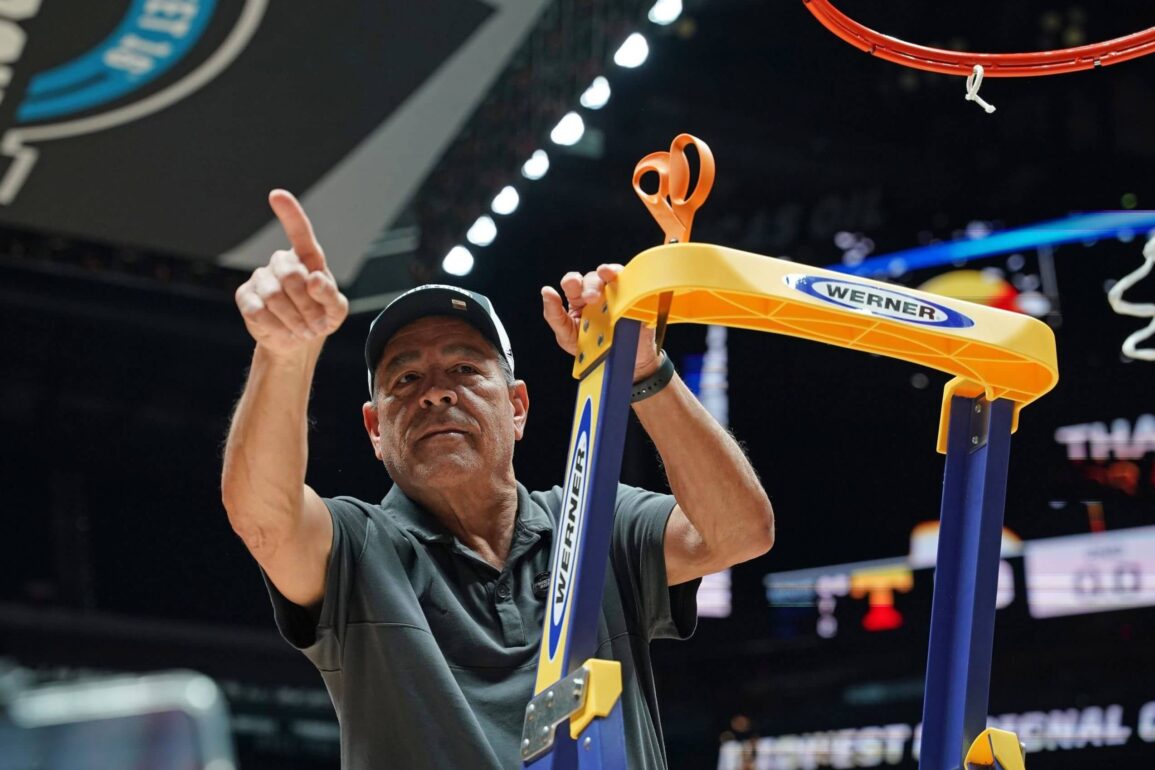Bruce Pearl had the cookout. Kelvin Sampson had all the phone calls. Will Wade made the “strong-ass” offer. Rick Pitino was caught up in that same FBI investigation, which alleged bribes to recruits.
In the old era, they all left their jobs, labeled as cheaters. In the new era, they all have different jobs, and they’re all still winning.
Advertisement
That says a lot about an old era with antiquated rules and this new era of seemingly unlimited rules — and not just in basketball.
First, basketball, with the Final Four set for this week, when Sampson will coach Houston and Pearl will coach Auburn. Many eons ago, Sampson’s career seemed over, forced out at Indiana after an NCAA investigation into which he made illegal phone calls. Pearl has had his years of supposed scandal, including at Auburn, but here he is, any connection to an FBI wiretap scandal a distant Wikipedia entry.
You may remember that FBI investigation, which was announced to much fanfare in 2017 but seems so antiquated now. Programs were accused of bribing recruits through shoe companies. There were wiretaps, arrests and dozens of programs touched either by their coach or a player being implicated. Whether it was a good use of federal resources at the time, what was alleged was at least against NCAA rules.
Wade, then LSU’s coach, was caught on a wiretap talking about a pay-for-play offer. He was fired, seemingly run out of the profession. Then he turned back up at McNeese, got it to the NCAA Tournament the past two years and scored a major upset this year. NC State hired him after making him what one might call a strong offer.

Kelvin Sampson is heading to the Final Four for the second time with Houston and the third time in his career. (Robert Goddin / Imagn Images)
Pitino had a few off-court scandals when he was at Louisville. But the one that did him in was the connection to the same FBI investigation. It was eventually deemed a resignation and seemingly branded the legendary coach out of the profession. Iona gave Pitino another chance, and lo and behold, he won there. Then he got the St. John’s job, and lo and behold won there too.
Bill Self and Kansas reportedly were part of that FBI scandal. But Self skated by, kept his job and kept winning. Not so much this year, but he has a championship ring from three years ago.
Advertisement
Sean Miller is another, not technically fired from Arizona, but let go. He turned up again at Xavier, where he had won before and then won again, and he just got hired by Texas.
This is not to absolve the coaches. They knew the rules, which had been in place for more than 100 years. They came up under the system, agreed to abide by those rules to keep their jobs. Many of those rules, it turns out, were unjust, but that doesn’t mean breaking them was good.
The question, which may never be fully answered, is how many other coaches were breaking those rules. Anybody who covered basketball during the pre-name, image and likeness era would hear from disgusted coaches — in basketball and football — who would privately accuse rival programs and coaches of paying for recruits. But they rarely, if ever, publicly named them. Those who did would have risked ostracization, such as a young Iowa assistant coach in the 1980s who secretly recorded a conversation with a recruit who admitted to being offered money by another school.
That then-Iowa assistant coach? Pearl. He became a pariah in the coaching ranks for breaking an unwritten code. Then he rose back up, still not quite making friends in the coaching business, with many continuing to whisper behind his back about his antics and ethics, and they were validated when Pearl was fired by Tennessee in 2010 over lying to the NCAA about hosting a barbecue for recruits.
Five years later, Auburn gave Pearl another shot. And Pearl, just as he did at Tennessee and Wisconsin-Milwaukee, won again. Auburn was implicated in the 2017 FBI investigation, but Pearl kept his job. Now here he is, in the era when everyone can pay, and he’s still winning.
That brings us to football. The SEC is coming off a down year in its hallmark sport, locked out of the national championship game for the second straight year. One of the theories for that has been that in this era, when everyone can pay players, the SEC, if you believe it previously has engaged in unsavory recruiting, no longer has an advantage.
Advertisement
And yet in basketball, where everyone can pay players, the SEC just had the best season ever for any conference: a record 14 teams in the NCAA Tournament, four in the Elite Eight and two in the Final Four.
Maybe it’s an imperfect comparison. Maybe the two sports are too different, in terms of structure and history. Maybe we were naive to think it was only those who were caught who were cheating.
Either way, the old era is gone. The new era is evolving: Basically, there have been no rules the past few years, but next season should bring revenue-sharing, with supposed oversight of outside NIL rules, but unlimited transferring remains, the bane of college athletics.
What should be clear, however, is that what some assumed before — some coaches only won because they broke the rules — wasn’t true. Some coaches are just good at coaching, building programs and developing.
And good at recruiting, whatever the means, and whatever the rules may be.
(Top photo of Bruce Pearl: Kevin C. Cox / Getty Images)
This post was originally published on this site be sure to check out more of their content.






